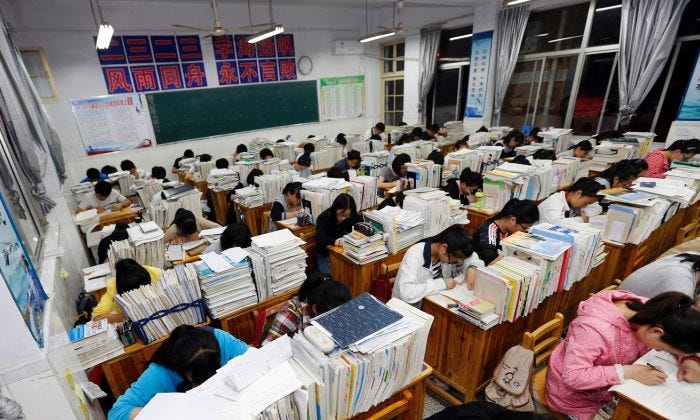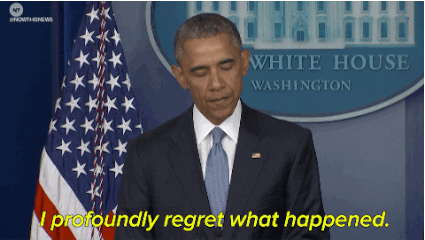3-Bullet Sunday (What's Huang Qifan thoughts on regulating China big tech and what's happening to China's Education Stocks?)
Hi everyone!
Here in Singapore, we are reverting to lockdown again. It’s definitely a bummer, but at the same time, it’s been a great opportunity for me to experiment with different ways of delivering content. Do check out my YouTube channel!
Huang Qifan’s thoughts on China tech
News on China's series of regulations across multiple sectors is the talk of the town this week.
Now, some of you may be wondering what’s the end game for all this regulation?
To answer this, I will highlight the key points made by Huang Qifan (article in Chinese). For context, Huang is the former mayor of Chongqing who was both the person who granted Ant the microlending licenses and the person to publicly criticize Ant’s irresponsible microlending practices. He’s now Vice-Chair of the National People’s Congress Financial and Economic Affairs Committee.
Anyway, you get my point that he is sort of a big deal and plays a role in shaping public policy.
Here are four main problems he highlighted with consumer internet companies:
Companies burning capital in an effort to scale up and obtain a monopoly. This makes everything a zero-sum game and destroys the economy’s ability to allocate resources optimally. Once a monopoly arises, the costs for merchants end up being even higher than selling in an offline channel.
Taking advantage of human weaknesses to design products and acquire traffic. This refers to Chinese apps using lewd or extremely clickbait-y tactics to hook users. Many of the content apps engage in this strategy, with Weibo being one of the worst offenders.
Monopolistic online platforms taking asymmetric measures to collect large troves of information and infringing on users’ privacy.
Discriminatory pricing based on class. It is common for platforms to divide the user base into different classes and charge different prices accordingly. Fun fact, Amazon used to do this as well until it was called out. Anyway, this usually indicates that the internet company has yet to find a profitable business model and needs to rely on predatory pricing tactics to stay afloat. This was one of the practices specifically highlighted in the antitrust regulations and Didi has been one of the most frequently cited.
Anyway, I think it’s more helpful to dive into the Chinese policymakers’ thoughts and interviews to truly understand how they are trying to shape China's regulatory landscape than to simply just say, “Chinese Government is unpredictable, stay away.”
Blanket statements like the above or the especially common “the Shiller PE is an all-time high, the stock market is too expensive” without critical thinking annoys me quite a bit.
China Education Sector
This week, China’s State Council drops a new set of rules for the education sector (specifically the tutoring firms):
Most firms must be non-profit, have no private capital, no IPOs.
Vacation & holiday curriculum tutoring banned
Online tutoring & school-subject teaching for kids below 6 banned
When investing in China, it is important to study the rules of the game—The Five-Year Plan. Every five years, all officials will sit together for an intense two-day meeting and figure out the objectives and key results to deliver.
This is where KPIs are set and this is probably an apt time to bring in Charlie Munger’s quote, “Never, ever, think about something else when you should be thinking about the power of incentives.”
Any investor serious about investing in China will have to study this document.
One of the biggest challenge outlined by China is the aging demographic. In other words, people aren’t giving birth fast enough, and it is largely due to the high cost of starting a family.
From age 7, children go through immense stress, going to classes after classes, tuition after tuition, and that’s all there is to their childhood. It doesn’t help that these education companies are bombarding parents with advertisements on how you can unlock your child’s potential and triggers immense FOMO.
If left to free reign, the aging population and a bunch of stressed-out kids will spell problems for China. It is probably overdue, but given the social and economic ramifications, the Government had to step in.
Bonus tip: Another challenge outlined on the high cost of starting a family in China is property prices. Be wary of investing in developers that have a strong prescence in China residential market.
I apologize that this segment has gotten way lengthier than usual, but I think it’s important for investors in China to know this.
If you have found this helpful and you have friends who are interested in China’s market, share this with them!
And you haven’t already, join 1,300 other compounders and start compounding all things worthwhile, today.
I. Let’s Talk Economic Moats!
As you may know, I have started my YouTube channel two weeks back and I aim to push out at least one video every week. I’ll talk about topics I get questions on the most—investing, retirement, personal development and careers.
One of the most requested topic I received is how can I maximize my CPF (the equivalent of a 401k)? That is definitely in the works so do subscribe to my channel and get notified.
This week, I talk about economic moats!
You probably hear this term thrown around a lot when reading investing articles and Warren Buffett often preaches that we should invest in companies with deep and wide moats.
In this video, I will talk about what an economic moat is and provide real-life examples of how do we spot it!
II. Casualties of Perfect by Morgan Housel
“Just like evolution, the key is realizing that the more perfect you try to become the more vulnerable you generally are.”
Love how Housel brings out the different perspectives on life and in investing so elegantly. There will always be a trade-off when we constantly look to optimize our resources, be it time or capital. Life is seldom binary like we make it out to be.
III. Sarah Blakely, Founder and CEO of SPANX on the key to living your best life









